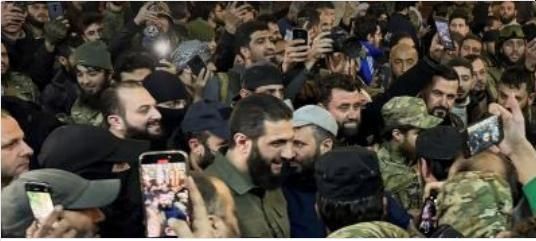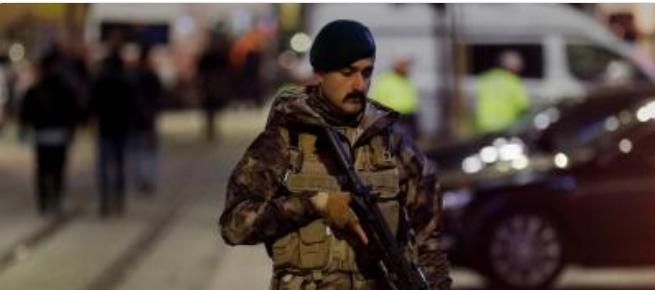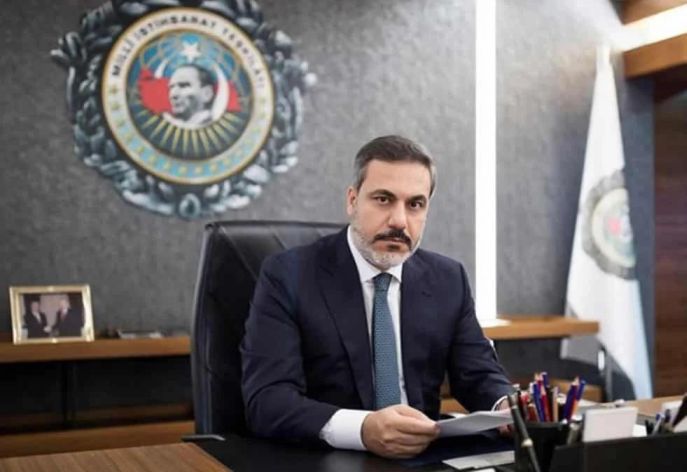By Eric Vandenbroeck and co-workers
The Syria of Today
In the early hours of Dec. 8, the
Assad dynasty’s more than half a century of brutal rule in Syria came to
an end.

The US has made
"direct contact" with the HTS rebels who now control Syria after
toppling the Assad regime, Secretary of State Antony Blinken has said.
It is the first
acknowledgment of direct American contact with Hayat Tahrir al-Sham, which the
US currently still designates as a terrorist organization.
Blinken was speaking
in Jordan after talks with representatives from several Arab countries, Turkey,
and Europe to discuss the future of Syria.

Officials agreed to
support a peaceful transition process in the country, with Jordan's foreign
minister saying that regional powers did not want to see it "descend into
chaos".
The new
administration in Syria should be given a chance to govern following
their constructive messages, and Turkey stands ready to provide military
training if such help is requested, Turkish Defence
Minister Yasar Guler said.
NATO member Turkey
backed the Syrian rebels who toppled President Bashar al-Assad last weekend, ending a 13-year civil war. Turkey
reopened its embassy in Damascus on Saturday, two days after its
intelligence chief visited the Syrian capital.

"In their first
statement, the new administration that toppled Assad announced that it would
respect all government institutions, the United Nations, and other
international organizations," Guler told reporters in Ankara in comments
authorized for publication on Sunday.
"We think that
we need to see what the new administration will do and to give them a
chance."
When asked whether
Turkey was considering military cooperation with the new Syrian government,
Guler said Ankara already had military cooperation and training agreements with
many countries.
"(Turkey) is
ready to provide the necessary support if the new administration requests
it," he added.
Since 2016, Turkey
has mounted four military
operations across
growing swathes of northern Syria, citing threats to its national security.
Turkey is estimated
to maintain a few thousand troops in towns including Afrin, Azez,
and Jarablus in northwestern Syria and Ras al-Ain and Tel Abyad in the
northeast.
Many are busy
declaring winners and losers of this pivotal moment. Drawing a list of losers
at this stage is relatively easy. The regime itself, Iran, Russia, and
Hezbollah are among them. However, drawing a list of winners is not as
straightforward. Although Assad’s fall has significantly boosted
Turkey’s influence and stature in Syria and in broader regional geopolitics,
HTS, Hayat Tahrir al-Sham, the rebel faction that led the offensive that
toppled him, is not a Turkish proxy. That said, Ankara remained committed to
the Syrian opposition groups during difficult times and now has significant
influence over HTS and the ability to affect its actions and decisions.
A joint communique
called for an inclusive Syrian government that respects the rights of
minorities and does not offer a base for "terrorist groups".
The talk both inside
and outside Syria after the tumultuous events of recent weeks has been of the
vital importance of setting up new governance that represents all Syrians.
At the meeting in
Jordan, Iraqi Foreign Minister Fuad Hussein expressed concern over Syria's
future shared across the Middle East and beyond.
He said regional
players did not want to see another Libya - referring to the chaos that ensued
after Colonel Gaddafi's removal from power.

Turkish Foreign
Minister Hakan Fidan said existing Syrian institutions must be preserved and
reformed.
"Never allow
terrorism to take advantage of the transition period. And we have
to coordinate our efforts and learn from the mistakes of the past,"
Fidan said according to Reuters news agency.
For updates click hompage here